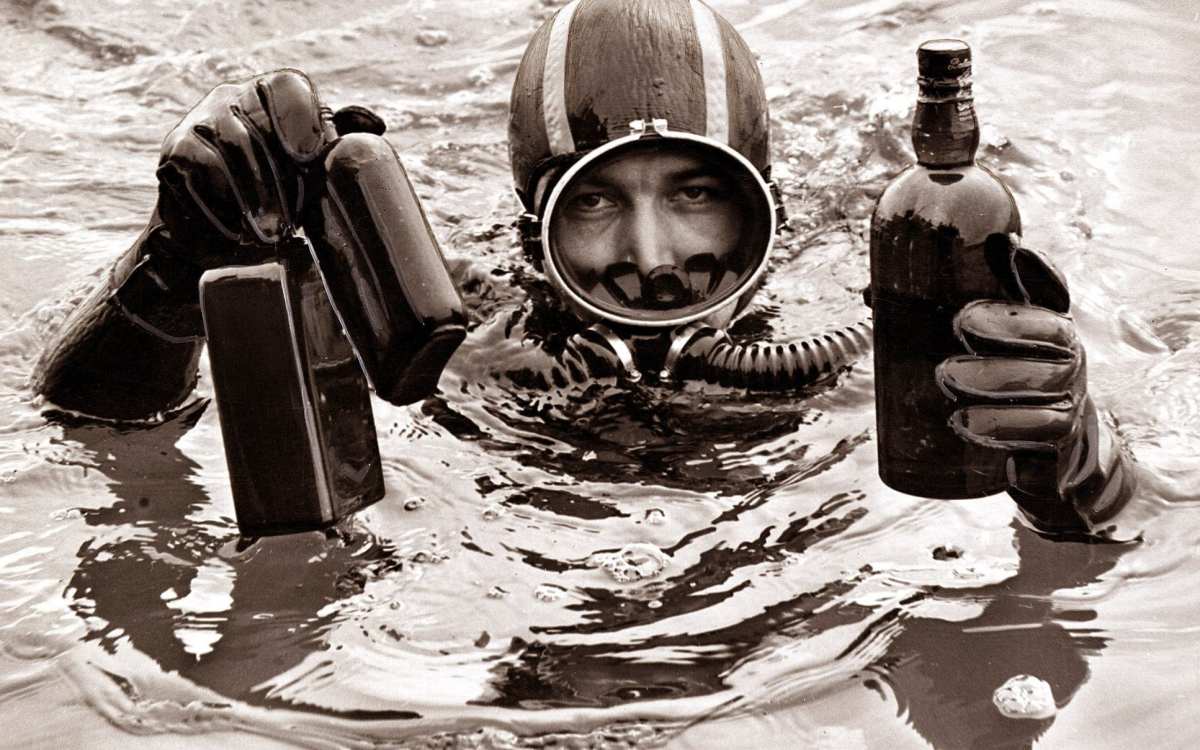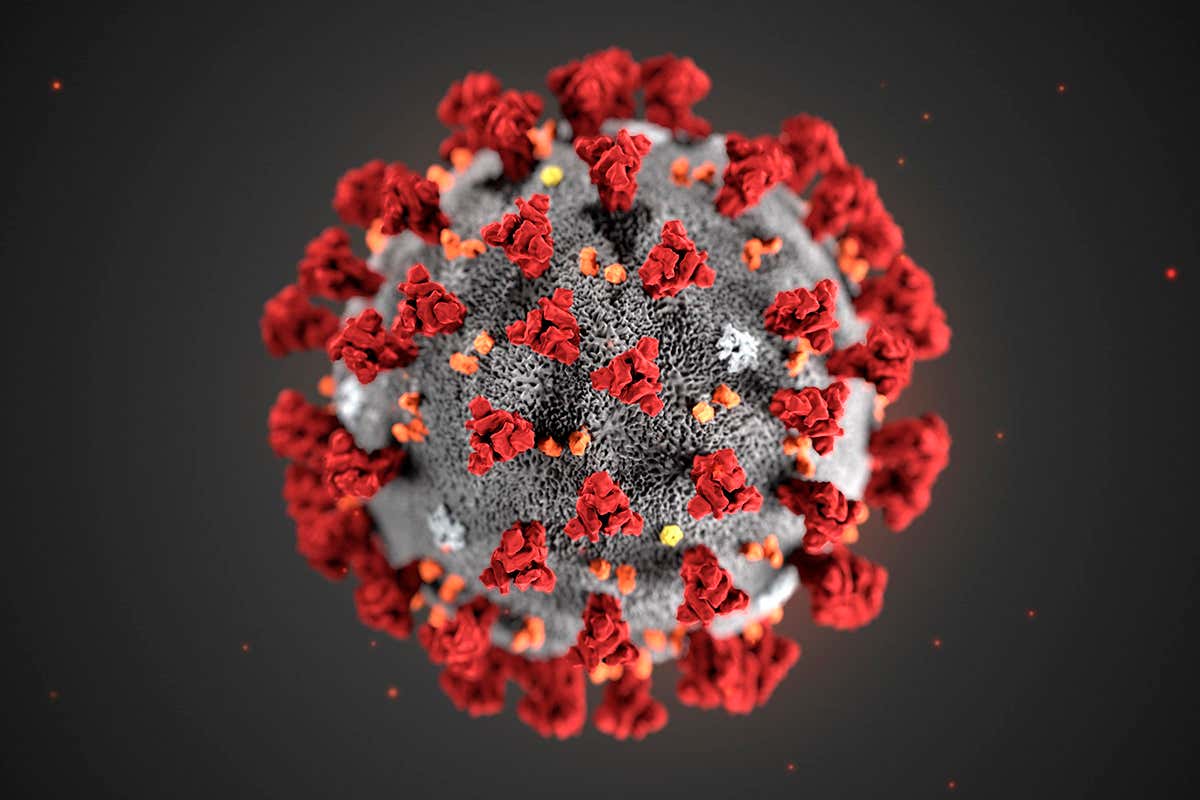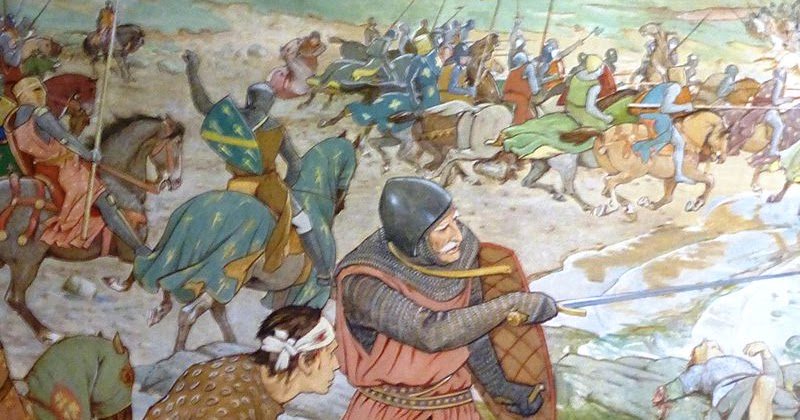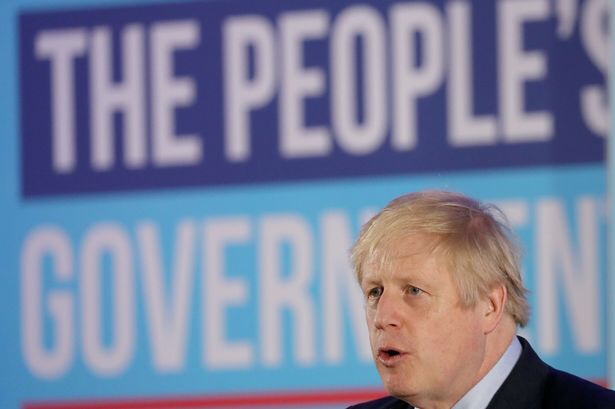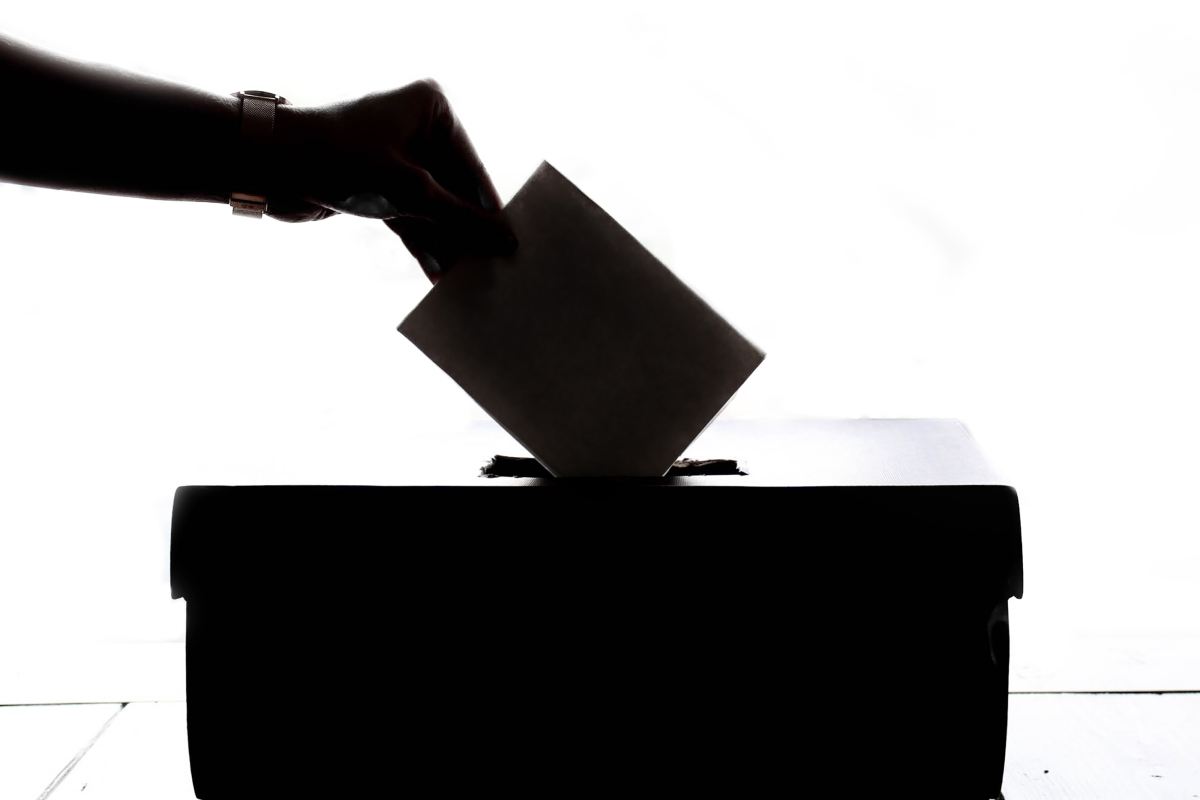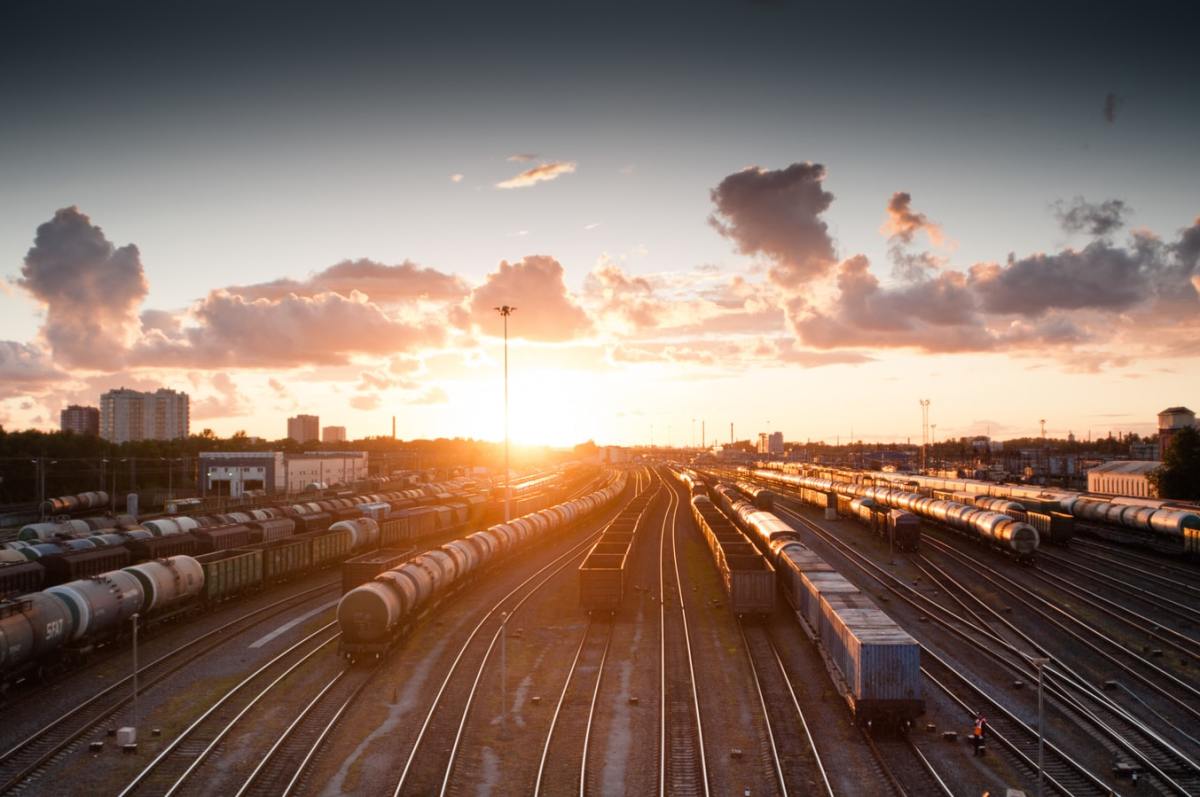A piece of Scotland’s bottled history was recently acquired at auction by the Scottish Maritime Museum, based here in Ayrshire; A bottle of whisky salvaged from the wreck of the SS Politician, along with the helmet of diver George Currie, who retrieved the bottle, and two bricks that were also part of the cargo of the ship are now part of the Museums national maritime collection.
The story of the SS Politician was the basis of the widely popular book, written by Compton Mackenzie, and film of the same name Whisky Galore!, in which the residents of the tiny Scottish Island of Todday are horrified to learn that they have run out of whisky; soon after, the SS Cabinet Minister runs aground nearby during heavy fog, carrying a cargo of 50,000 cases of whisky. Theft and hilarity ensue as they try to hide the whisky from the officious English commanding officer Captain Waggett. As it turns out, the true story that Whisky Galore! is based on may be even stranger and more interesting.
Life was particularly difficult for the Island communities in Scotland during the Second World War; the introduction of rationing in 1940 meant that anyone over the age of 5 had a ration book which contained tokens to be used for various items such as butter, sugar, eggs, meat and clothing. This was done to prevent stockpiling and while the Islands in the Outer Hebrides were mostly self-sufficient, it still meant supplies they could not cultivate for themselves were running low. The small island of Eriskay, just south of South Uist, was mostly crofting land at the time and the residents were feeling the brunt of the ongoing war; the constant threat of German U-boats meant that it was dangerous to send out puffers to the islands, so life became quite difficult.
In February of 1941, the SS Politician was heading north to pass the Outer Hebrides on its way to Kingston, Jamaica and then New Orleans. Once past the Isle of Man they hit a spell of bad weather with gale force winds forcing the ship off-course. The captain, Beaconsfield Worthington, attempted to change course to compensate but ran aground on sand banks just off the Isle of Eriskay, rupturing the engines and causing the ship to flood. The crew survived with the help of the islanders but after learning of the contents of the cargo and believing it was perfectly legal to take it under marine salvage laws, the islanders decided to salvage as much of the precious cargo as they could.
Although the ship was carrying all manner of trade goods such as medicine, biscuits and even £145,000 in Jamaican 10-shilling notes, the islanders were mostly concerned with the contents of Hold 5 – around 264,000 bottles of whisky. People from all around the island and others gathered to take part in night raids of the wrecked ship to rescue as much whisky as they could.

The UK Customs and Excise Officers did not share the islanders view on marine salvage, declaring their activity illegal as the whisky was destined for America, so no duty had been paid on the cargo. This prompted a swift response with the authorities raiding villages and crofts to recover the untaxed spirits. The islanders made a valiant effort to hide as much of it as they could – be that by storing it where it could not be found or simply drinking as much as they could. It was estimated at the time that around 24,000 bottles had been stolen and some of the islanders were successfully charged with illegal salvage and black-market trading offenses for which they could spend up to 6 weeks in prison in either Inverness or Peterhead.
In spite of this many of the items recovered from the ship were never seen again, and after the official salvage operation was called off the decision was made to scuttle the SS Politician using dynamite to deter any further temptation. Interestingly, included in the cargo that was initially completely written off were the Jamaican bank notes; after recovering what they could, it was believed the rest couldn’t have survived being in the water and the head of the official salvage operation even handed out the few that were recovered as souvenirs. Only four months later, branches of Barclays in Liverpool started reporting being presented with water damaged Jamaican notes and over the next couple of years these notes would show up from the south of England all the way to the north of Scotland. It took a further fifteen years before Crown Agents decided to make a final tally and what they discovered was that of the 290,000 notes on board, 211,267 had been recovered in some capacity. They calculated that around two thirds of the recovered notes were presented around the world legally which left 76,404 bank notes (£38,202) allegedly salvaged and used by the islanders.
The rest of the goods that went down with the ship remained largely untouched until June 1987 when Orkney resident George Currie decided to dive to the wreck after completing a repair on a sub seas cable between Eriskay and South Uist. Five bottles of whisky were recovered that had lain there for over 40 years and he kept one in his possession until just recently.

The Scottish Maritime Museum was able to acquire the bottle along with the diving helmet used by George Currie, two bricks that were part of the ship’s cargo and a poster of the 2016 remake of Whisky Galore! thanks to funding from the National Fund for Acquisitions. This brings another important part of Scotland’s rich cultural heritage back to the public. In their own press release on their site the Senior Curator of the Maritime Museum, Abigail McIntyre, is quoted as saying –
“We are thrilled to add this bottle of whisky which has become so embedded in Scottish island folklore to the collection.
“There are so many fascinating topics we can explore with our visitors through it, from island life during the war period and underwater archaeology and recovery through to challenging our understanding and portrayal of smuggling in Scottish waters.
“The wreck of the SS Politician had a profound effect on the life of the islanders of Eriskay, many of whom felt keenly the injustice of being prosecuted. As well as looking at the impact of the shipwreck generally, we will also explore maritime laws and their implications through this wonderful new artefact.”
The bottle of whisky- along with the diving helmet- has been put on display for free in the museums boat shop, and there are plans for the objects to be used in the 2023 exhibition ‘Smuggling and Swashbuckling’, where it will contribute to a discussion around the history of smuggling in Scotland.
At a time when so many cultural and heritage organisations are facing hardship, it’s great to see that the work to protect and maintain Scotland’s cultural heritage continues.

